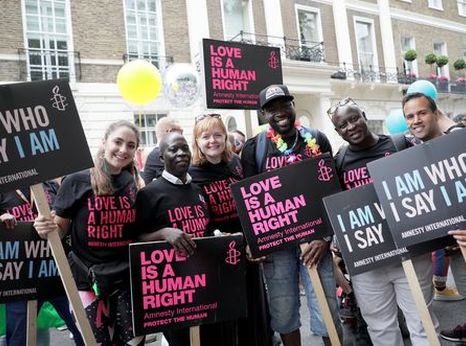Free trans asylum seeker from detention

During her 2.5 years in detention, Kelly spent months in solitary confinement solely because of her gender identity. She has never been given a bond hearing. Multiple requests for humanitarian parole have been denied. She has a community waiting to welcome her, and there is no reason not to release her.
All Kelly wants is to live safely and without fear. There are many more transgender individuals like Kelly who are unjustly locked up in immigration jail while they apply for asylum and are experiencing inhumane treatment because of their gender identity. The United States of America has the largest immigration detention system in the world, with an average daily population of nearly 40,000 immigrants and asylum seekers in over 200 immigration detention facilities in early 2020. Those detainees stuck in US immigration detention facilities are at serious risk of a deadly outbreak of COVID-19, as confirmed cases skyrocket exponentially in the USA.
Amnesty International has received credible, consistent, and disturbing accounts from detainees of dangerous conditions in ICE immigration detention facilities, which puts those with HIV and other underlying medical conditions at higher risk of contracting and dying from COVID-19.
DHS officials and ICE facility operators have failed to adopt adequate protection measures, including by supplying soap and sanitizer to those in detention, facilitating social distancing in line with CDC guidelines and global standards, and providing adequate and responsive health care to those exhibiting symptoms of COVID-19.
In order to urgently halt the spread of COVID-19, and avert thousands of preventable deaths, ICE must reduce to an absolute minimum – as quickly as possible – the number of people held in its immigration detention facilities. As a priority, ICE should provide alternatives to detention and grant humanitarian parole to detainees who are older, have underlying medical conditions, or are otherwise at higher-risk of irreparable harm if they contract COVID-19. All families must be immediately released as it is never in the best interest of a child to be detained on account of their immigration status, and it is not in a child’s best interest to be separated from their parents, caretaker, or guardian.
Detention of asylum-seekers should only be a measure of last resort, after other non-custodial alternatives have proven or been deemed insufficient in relation to the individual. According to the UN Special Rapporteur on torture and other cruel, inhuman or degrading treatment or punishment, the detention of asylum seekers solely on the base of their immigration status can “very quickly, if not immediately” constitute ill-treatment against individuals in situations of increased vulnerability, specifically including women, older people, persons with medical conditions, or social minorities including LGBTI persons.
Under international law, the US government has an obligation to ensure that the human rights of migrants and asylum seekers are respected, protected and fulfilled. In its July 2017 report on a country visit to the US, the UN Working Group on Arbitrary Detention said that: "the mandatory detention of immigrants, especially asylum seekers, is contrary to international human rights and refugee rights standards.[...] The Working Group has observed that the current system of detaining immigrants and asylum seekers is, in many cases, punitive, unreasonably long, unnecessary, costly when there are alternative community-based solutions, […] not based on an individualized assessment of the necessity and proportionality of detention, carried out in degrading conditions, and a deterrent to legitimate asylum claims."
Also, the United States government is under an obligation not to return individuals to a situation in which they would be at risk of torture or other serious human rights abuses: the principle of non-refoulement. Such safeguards are imperative for protecting refugees fleeing violence and persecution.